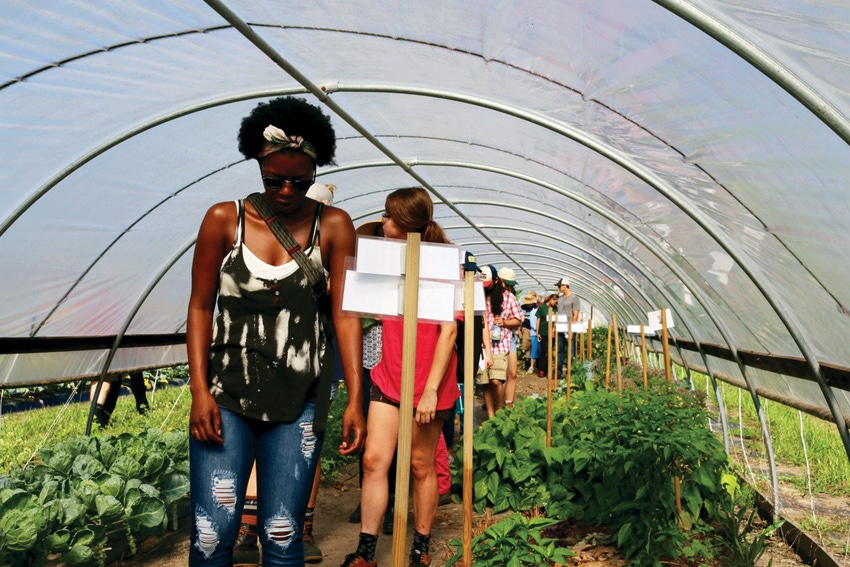June 15, 2016

High tunnels installed in farm fields could extend the South Carolina growing season and boost production of specialty crops desired by high-end restaurants and other buyers.
Clemson University Extension Agent Zachary Snipes is testing the use of these tall hoop houses made of pipe and plastic to grow vegetables at Clemson’s Coastal Research and Education Center in Charleston.
“Maybe at the end of the season when no one has tomatoes you will still have them because of these high tunnels,” Snipes told growers at the Coastal REC Field Day, which showcases various research projects ongoing at the center. “A lot of growers already have high tunnels but they’re not using them because they don’t realize how profitable they can be.”
High tunnels preserve warmth, allowing growers to produce strawberries in the fall, for example, or kale throughout the winter.
Snipes is growing horseradish; artichokes; Asian greens; tomatillos; and kallettes, a hybrid of Brussel sprouts and kale; among other crops. So far, the shield from rain and direct ultraviolet light has led to high-quality produce in the high tunnels, Snipes said. Problems with diseases like powdery mildew or insects such as cross-striped cabbageworms can be issues in high tunnels, however, so Snipes is testing various control methods to protect yields.
This type of technical assistance for growers is badly needed, said Sara Clow, general manager of GrowFood Carolina, a non-profit that serves as the connection between farmers and the retailers, chefs and institutions that buy their food. The organization is constantly working with farmers to help them navigate supply and demand of various specialty crops.
“I think high tunnels are a huge opportunity, especially here because of our climate, but there needs to be more regional specific research and training,” Clow said. “Zack is innovating, which is awesome. You have to keep innovating. Any niche specialty crop, we’re going to find a market for.”
The key will be learning how to grow these crops — and which specific crops to grow — on a commercial scale that will make economic sense, she said, because high tunnels can be expensive.
“We are looking for a consistent and diverse supply of products,” Clow said. “We’re constantly working with growers to produce a variety of crops to meet that supply and demand.”
You May Also Like




